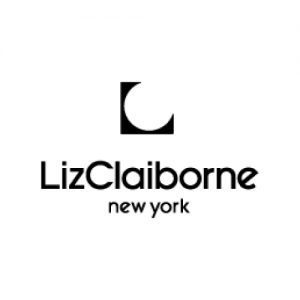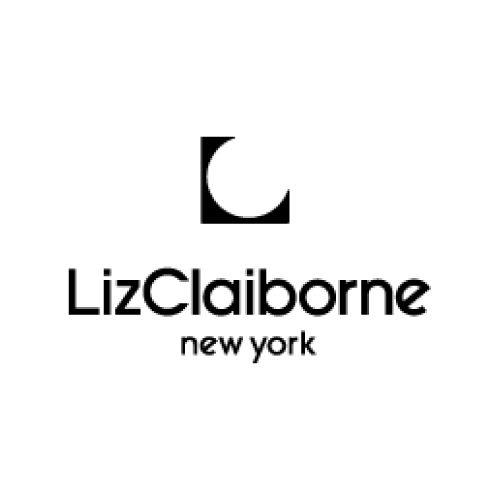Contents
Summary
Liz Claiborne built a fashion empire by taking career women out of uptight suits and offering them a selection of affordable, stylish and colorful separates. She is acclaimed for revolutionising the retail format and the way women shopped.
History
In 1949 Liz Claiborne’s sketch of a women’s coat won a design competition sponsored by Harper’s Bazaar and she began working in New York as a design assistant and model. During the Fifties she designed sportswear, dresses, and tailored clothing. Her experience was extensive. She worked in the Garment District on Seventh Avenue as a sketch artist at sportswear house, Tina Leser. In a few years, she worked for designer Omar Kiam and later as a designer for Dan Keller and Youth Group Inc.
Frustrated by the lack of stylish workwear, Liz Claiborne, along with her husband Art Ortenberg, Leonard Boxer and Jerome Chazen, launched her eponymous brand in 1976. Per CFDA: “Liz Claiborne, Inc. was founded in 1976 with approximately $250,000, including $50,000 of Claiborne and her husband’s savings. Ortenberg was the company’s secretary and treasurer; industry executive and friend Leonard Boxer handled production; and Jerome Chazen joined the company in 1977 to run the company’s marketing operations.”
Claiborne returned to the first principle of the shirtwaist – feminine fabrics and colour combined with masculine simplicity of use and drew from her extensive experience in designing in sportswear, to clothe “busy and active women like myself… who dress in a rush and who weren’t perfect.” Her debut was a collection of moderately priced separates that combined style with functionality and high quality… and introduced the American woman to modern workwear.
The fashion brand was an immediate success with reported sales of $2 million in the year of its launch and $23 million in 1978. “Her sensibility and her view of the American woman was a heartbeat ahead of the American woman” retail consultant David Wolfe told Reuters. “She was ready and waiting when the American woman grew up.”
In a decade, the fashion brand acquired one-third of the American women’s luxury sportswear market. Claiborne’s success can be attributed to her perception of her customers’ needs. She insisted her line of clothing be displayed separately- as a department in itself. “The concept was to dress the American working woman because I, as a working woman with a child, didn’t want to spend hours shopping” she told WWD. “Things should be easy. You don’t have to dress in that little navy blue suit with a tie. I wanted to dress her in sportier clothes and colours.”
In 1980, Liz Claiborne Accessories was founded and a year later Liz Claiborne Inc. went public. Within a few years after the first shares of stock in Liz Claiborne, Inc., Claiborne added shoes, menswear and fragrances to the product portfolio. The growth continued despite the recession of the early Eighties when other fashion brands were suffering. The reason, she explained in Forbes, “the Liz lady still works for a living… She hasn’t been laid off from her executive job, and she needs and buys clothing. So, stores are still planning big increase despite all the doom and gloom.”
In 1986- when company sales reached $1.2 billion– it joined the list of Fortune magazine’s five hundred largest industrial companies in the United States, one of only two companies on the list that had been started by a woman. That year.. Claiborne, who was company President, became Chairman and Chief Executive Officer. Per Forbes, an example of the success Liz Claiborne has had in integrating new lines is its 1999 acquisition of Segrets, which, like Ellen Tracy, sells women’s sportswear at prices a notch above Claiborne’s other lines.
Claiborne retired from active management in 1989 to focus on charity.. mainly Liz Claiborne and Art Ortenberg Foundation which funded several conservation management and education programs worldwide. Her husband retired at the same time. In 1990 Liz Claiborne and her husband were elected to the National Business Hall of Fame. Liz Claiborne was elected to the National Sales Hall of Fame in 1991 and she received an honorary doctorate degree from Rhode Island School of Design the same year.
Liz Clairborne Inc. became exclusive to J.C.Penney. Sadly Liz Clairborne died of abdominal cancer at New York Presbyterian Hospital on June 26, 2007. She had been fighting the disease for ten years.
Vision
Liz Claiborne’s vision was rooted in empowering working women by offering stylish, affordable, and functional clothing that met their professional needs. At a time when the fashion industry largely catered to high-end or casual styles, Claiborne identified a gap in the market for fashionable yet practical clothes for women entering the workforce in larger numbers. Her designs focused on blending comfort with chic, ensuring that women could feel both confident and professional in their attire. The affordability of her collections made quality fashion accessible to more women, reshaping how women dressed for success in the business world.
In addition to creating practical yet elegant clothing, Claiborne envisioned a brand that would also reflect the changing roles of women in society. Her vision embraced the idea that women could be strong, ambitious, and career-driven without sacrificing their femininity. Claiborne’s designs broke away from the rigid, masculine styles that had often dominated women’s business attire, opting instead for softer silhouettes, bold colors, and creative patterns that reflected individuality while maintaining professionalism. This innovative approach allowed her to tap into a previously underserved market of women who wanted to express their personal style without compromising their professional image.
Beyond her focus on design, Liz Claiborne’s vision also extended to how she ran her business. She was one of the first women to lead a Fortune 500 company, and her leadership style reflected the same principles of empowerment and inclusivity that defined her brand. Claiborne was committed to creating opportunities for women in her company, promoting diversity, and fostering a work environment that valued collaboration and innovation. Her vision wasn’t just about making clothes—it was about creating a lasting impact on both the fashion industry and the professional landscape for women, leaving behind a legacy of inspiration and progress.
Mission Statement
Liz Claiborne was founded with the mission of providing stylish, affordable, and accessible fashion for the modern woman. From the outset, the fashion brand sought to empower women by offering clothing that combined functionality and elegance, allowing women to feel confident and comfortable in their professional and personal lives. At a time when the fashion industry often neglected the needs of working women, Liz Claiborne’s mission was to fill that gap by creating designs that were versatile, well-made, and accessible to women of all backgrounds. The brand emphasized that fashion should not be an obstacle but a tool for women to express themselves and thrive in their roles, whether in the workplace or at home.
Beyond its focus on creating fashion-forward yet practical clothing, Liz Claiborne’s mission was rooted in inclusivity. The fashion brand aimed to cater to women of all shapes and sizes, recognising that beauty and confidence come in many forms. This inclusive vision set Liz Claiborne apart from many contemporaries, as it strove to break the industry’s narrow beauty standards and embrace diversity. By offering a wide range of sizes, styles, and designs, the brand promoted body positivity and gave women the opportunity to find pieces that suited their individual preferences and needs, fostering a sense of belonging and acceptance in the fashion world.
In addition to empowering women through fashion, Liz Claiborne has remained committed to ethical business practices and sustainability. The brand understands the importance of corporate responsibility in today’s market and has consistently worked toward reducing its environmental impact while ensuring fair labor practices. This mission not only reflects the brand’s dedication to making a positive difference in the world but also aligns with the values of its consumers, who seek both style and substance. Through a combination of quality craftsmanship, inclusivity, and ethical production, Liz Claiborne continues to stand as a symbol of empowerment and positive change for women everywhere.
Key Team
- Chief Executive William L. McComb
- Liz Claiborne (Late Founder, Chairperson and CEO)
- Jerome Chazen (Founder)
- Leonard Boxer (Founder)
- Art Ortenberg (Founder)
Products and Services
Liz Claiborne offers a wide range of products that reflect the fashion brand’s commitment to providing modern, stylish, and functional fashion for women. The New York-based brand’s core product line includes apparel for both professional and casual wear, from tailored blazers and trousers to dresses, blouses, and skirts. These clothing items are designed with versatility in mind, allowing women to easily transition from work to leisure without compromising on style or comfort. Liz Claiborne’s signature use of classic cuts, bold colors, and timeless patterns ensures that its pieces remain relevant season after season, offering longevity and value to customers.
In addition to its apparel line, Liz Claiborne also offers handbags, scarves, belts, and jewellery, each crafted to enhance a woman’s personal style. The fashion brand places an emphasis on accessories that not only serve a functional purpose but also add a distinctive touch to an outfit. Whether it’s a structured handbag for a day at the office or a statement necklace for a night out, Liz Claiborne’s accessories are designed to seamlessly integrate into a woman’s wardrobe, offering both practicality and elegance.
Beyond physical products, Liz Claiborne provides an engaging shopping experience, both online and in-store, that reflects the brand’s dedication to customer satisfaction. The brand ensures that its customers have access to personalized styling services, helpful fit guides, and a seamless online shopping platform that allows for easy navigation and selection. Liz Claiborne stores are designed to create a welcoming and inspiring environment, where women can explore the latest collections with ease. Whether through tailored customer service or a focus on accessibility, Liz Claiborne remains committed to providing more than just products—it aims to deliver a comprehensive and enjoyable shopping experience.
Awards and Recognition
Despite setbacks, the company acquired over forty brands — including Juicy Couture, Narciso Rodriguez, Lucky Brand Jeans, Dana Buchman and Ellen Tracy. In her lifetime, Liz Claiborne was honoured with several prestigious titles including National Sales Hall of Fame 1991; Honorary Doctorate from the Rhode Island School of Design 1991’ Golden Plate Award of the American Academy of Achievement 1993; Council of Fashion Designers of America Lifetime Achievement Award 2000 and Honorary Doctorate of Fine Arts from the Rhode Island School of Design.
References
- Official website JC Penney
- Liz Clairborne’s fashion empire LA Times
- Liz Clairborne CFDA
- Twitter account of Liz Clairborne Twitter
- The legend, the woman Elle
- Wiki page of Liz Clairborne Wikipedia
- The Liz Claiborne and Art Ortenberg Foundation LCAOF
- Liz Claiborne Continues Shopping Forbes
- Liz Clairborne The Economist
- Dressing America: The Success of Liz Claiborne Vogue
- Liz Clairborne School of Business Administration
- Targeting Younger Buyers, Liz Claiborne Hits Snag Wall Street Journal
- J.C.Penney Tramples on Liz Claiborne and Misses a Great Opportunity Forbes
- Liz Clairborne FMD
- Sportswear designer Liz Claiborne dead at 78 Reuters
- Remembering Liz Clairborne Vogue
- Liz Claiborne Remembered Forbes
- Liz Claiborne, 78; Fashion Industry Icon Washington Post
- Liz Clairborne Obituary The Guardian
- Industry Pioneer Arthur Ortenberg Dies WWD





